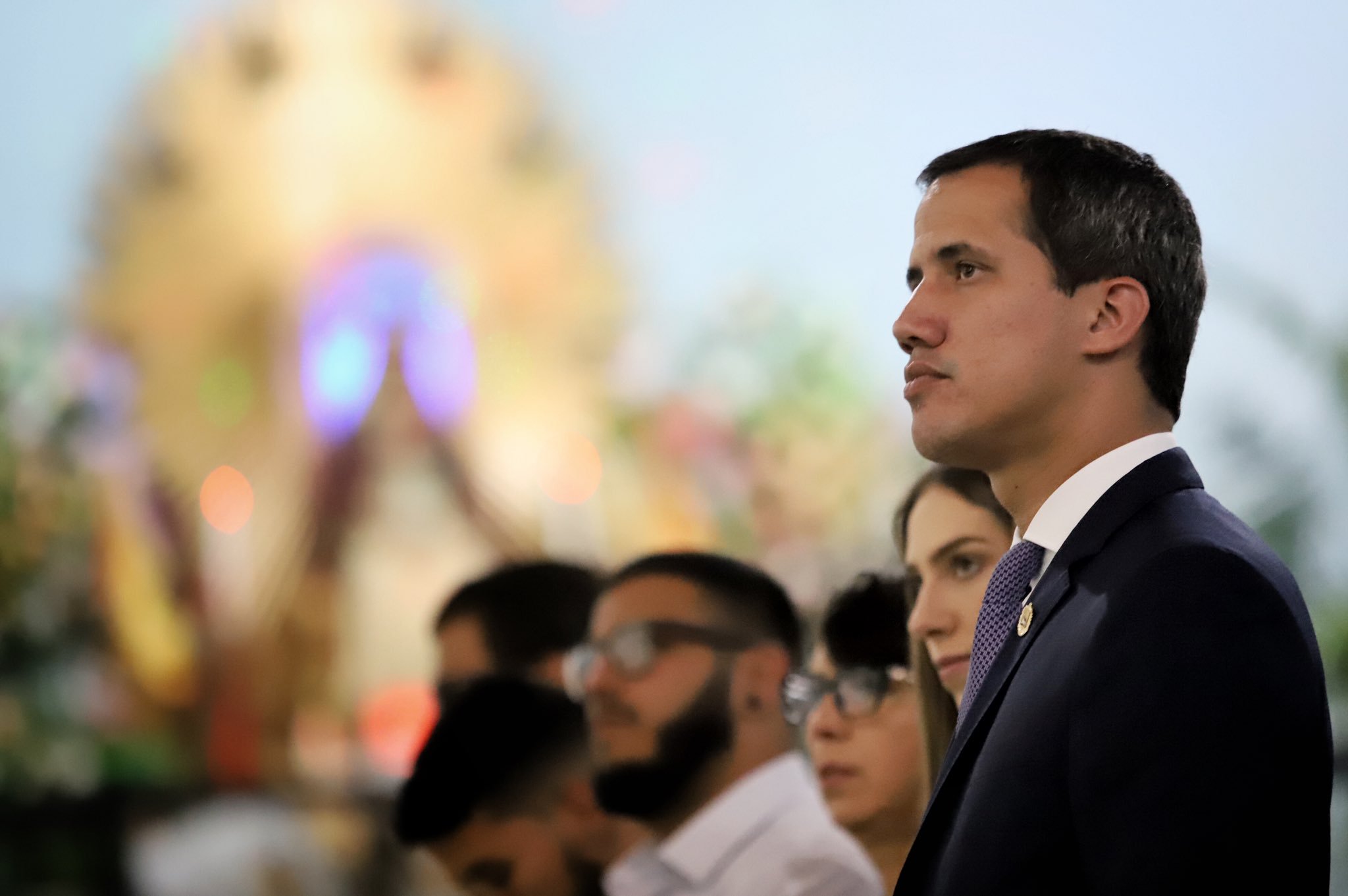
U.S. Drug Enforcement Administration (DEA) reports reveal that former Venezuelan President Hugo Chavez had ordered “flooding” the U.S. with cocaine from the FARC. They also point out that the former president was the leader and coordinator of the Cartel of the Suns.
According to information acquired by the newspaper El Mundo, Chavez wanted to fight Washington by flooding the U.S. soil with drugs.
The DEA explains that during the meeting, Chavez urged the group to promote political objectives, including “fighting the United States by flooding the country with cocaine. The newspaper claims that the former president issued orders “to coordinate with the Colombian guerrilla to carry out his plan.”
According to the information gathered by the drug agency from a witness, the group that attended the meeting convened by Chavez met on numerous occasions to execute the president’s plan.
“During the meeting, Cabello outlined the land and sea routes for drug trafficking through Venezuela, and Carvajal indicated that the Colombian guerillas, that is, the FARC, would supply the cocaine,” reports El Mundo.
In 2015, William Brownfield, deputy secretary of state for counter-narcotics, gave an interview to the Colombian daily El Tiempo in which he stated that Venezuela became Colombia’s primary drug exit route. “More than half of Colombia’s illicit product passes through the territory of its neighboring country (Venezuela),” he said.
A three-year investigation by InSight Crime also concluded that Venezuela became a haven for Colombian drug trafficking and smuggling.
“The guerrilla was one of the first to develop cocaine trafficking through Venezuela, to markets in the United States and Europe, while the Venezuelan contraband gasoline flowed in the opposite direction,” the investigation says.
Chavez’ Cartel of the Suns
The El Mundo report reveals what has been an open secret: Hugo Chavez was the founding leader of the Cartel of the Suns, made up of high-ranking Venezuelan officials dedicated to drug trafficking.
A second witness reveals another significant piece of information detailed in DEA reports: the former Venezuelan president declared that the FARC, and the Venezuelan state-owned PDVSA, would pay the necessary funds for logistical support such as “uniforms, boats, and computers.”
“Chavez ordered the second witness to bring him a phone, and the witness himself heard Chavez talking to Carvajal. In that conversation, the president ordered Carvajal to supply the FARC with weapons obtained from Russia that had previously been used by the Venezuelan army and others,” reports El Mundo.
A third witness told DEA that Pollo Carvajal was “responsible for establishing drug routes throughout South America” and revealed that “the Venezuelan military had provided surface-to-air missiles and explosives to the FARC.”
Both this witness and half a dozen others link Carvajal to the Cartel of the Suns as the one responsible for organizing the delivery of “seven shipments of cocaine” that involved bribes for corrupt Venezuelan officials.
According to an investigation by InSight Crime, the term “Cartel of the Suns” is used to describe groups within the Venezuelan security forces that smuggle cocaine.
According to Insight Crime, the Cartel of the Suns mainly comprises military officers, who set the price of cocaine in the country.
In January 2015, according to El Nuevo Herald, the former security chief of former president Hugo Chavez identified Diosdado Cabello, the second most important man in Chavismo, as presumed “Chief of the Cartel of the Suns.”
The drug lords
According to the DEA report, Hugo Chavez was one of the chief coordinators of the Cartel of the Suns. Additionally, several persons within the Chavista regime had direct relations with drug trafficking.
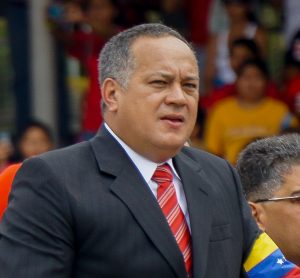
Diosdado Cabello: He is the president of the illegitimate Constituent Assembly and is prominent as the most powerful man of Chavismo. In 2015, The American newspaper The Wall Street Journal reported that the DEA and federal prosecutors were investigating Cabello and that there was evidence to show that the former president of the Venezuelan National Assembly could be the head of the so-called Cartel of the Suns.
So far, Cabello’s lawyers have not been able to refute this charge in U.S. courts.
Marco Rubio, Republican Congressman in the U.S., called Cabello “the Pablo Escobar of Venezuela”, referring to his links with drug trafficking and his status within the Cartel as a “capo.” Nikki Haley, former U.S. ambassador to the UN, confirms the same.
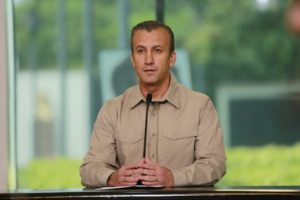
Tareck El Aissami, vice-president of the economic area: He was vice-president of Venezuela and is currently the minister of People’s Power for Industries and Production. He was included in a list by the U.S. Treasury Department for collaborating with drug traffickers.
The measure also involved Samark Lopez Bello who is accused of being the frontman of El Aissami and of owning nearly a dozen companies linked to the official.
According to the U.S. Treasury Department, El Aissami controls airplanes that take off from a Venezuelan airbase, as well as drug routes leaving from Venezuelan ports.
El Aissami is also involved in coordinating drug shipments to Los Zetas, the violent Mexican drug cartel, as well as providing protection to Colombian drug lord Daniel Barrera and Venezuelan drug trafficker Hermagoras Gonzalez Polanco, who was also mentioned in the case of the “narco-nephews” of Venezuela’s presidential family.
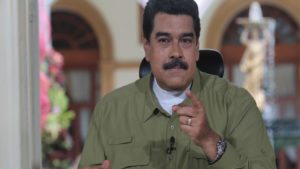
Maduro, the usurper: The U.S. government has not directly pointed out Maduro’s involvement in drug trafficking. However, the Venezuelan president is closely linked to international drug trafficking, so much so that two of his nephews were found guilty of attempting to smuggle cocaine to North America.
In fact, the Southern District Attorney’s Office of New York released a document revealing that Maduro had approved the drug trafficking actions undertaken by his nephews and nieces.
Prosecutor Joon H. Kim asserts that there is sufficient evidence that Efrain Antonio Campo Flores and Franqui Francisco Flores de Freitas (the “narco-nephews”) were likely to commit the crime of narco-trafficking since they were in contact with cocaine suppliers and members of the FARC. They also allegedly had the approval of the Venezuelan president.
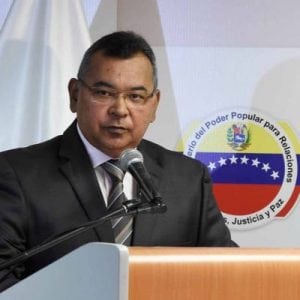
Nestor Reverol, Home Affairs Minister: The highest general was charged in the United States for being linked to drug trafficking.
Nestor Luis Reverol Torres and General Edylberto Molina are accused of conspiracy to smuggle large amounts of cocaine into the United States from Venezuela between 2008 and 2010.
The report states that the current home affairs minister, and the deputy director of ONA “took payments from drug traffickers to receive alerts of future operations, the locations of inspection by agents, and the time of the searches. Thus, they had enough time to move the drug around and look for alternative routes to get the product out of Venezuela.”

Edylberto Molina, Deputy Minister: Nicolas Maduro has appointed him as deputy minister for the Integrated Police System. Molina is a former director of the National Anti-Drug Office (ONA) and is charged with drug trafficking by the U.S. Department of Justice.
The U.S. accused Molina of participating in “international cocaine distribution conspiracy.” His name is included in the list of fugitives from American justice.
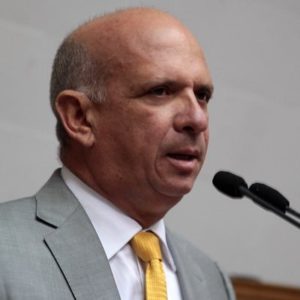
Hugo Carvajal, former intelligence chief: Hugo Carvajal, who was head of the Directorate of Military Intelligence during Hugo Chavez’s government from July 2004 to December 2011, is also accused of drug trafficking by the United States.
Carvajal is currently being held in Madrid awaiting extradition to the U.S. because of his involvement in cocaine trafficking.
In 2014 Carvajal was detained in Aruba because of an arrest warrant issued by the United States for his alleged link to a drug trafficking network associated with the FARC. Venezuelan President Nicolas Maduro protested, saying Carvajal had diplomatic immunity, and after a series of talks he was released and returned to Caracas, the Venezuelan capital.
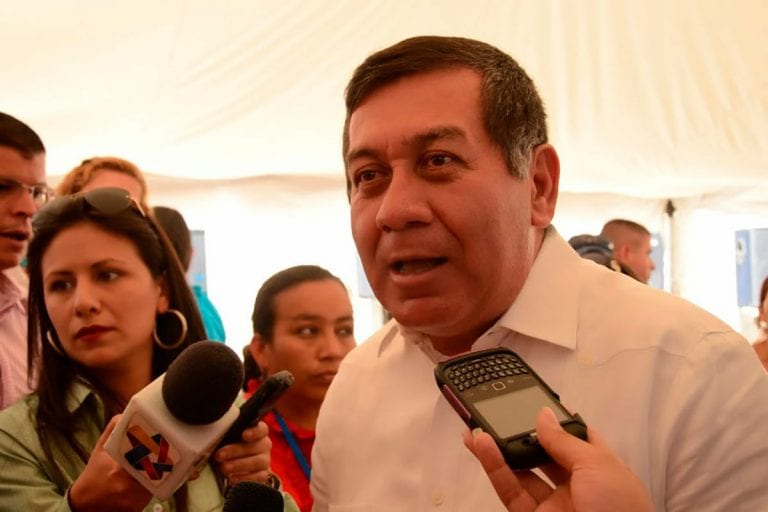
Henry Rangel Silva: He is the current governor of the state of Trujillo. On 12th September 2008, the U.S. Treasury Department ordered any bank accounts or assets that Rangel Silva might have in U.S. jurisdiction to be frozen because there was evidence that the politician had materially supported the FARC in its drug trafficking activities.
In August 2009, the New York Times published an article citing an alleged intercepted letter to FARC guerrilla Ivan Marquez, discussing a plan to buy arms from Venezuelan officials, and mentioning General Rangel Silva and former minister Ramon Rodriguez Chacin. According to that article, Rangel Silva would provide fraudulent identity documents to Colombian guerrillas to receive arms in Venezuelan territory.
The collaboration of the FARC and the ELN with chavismo continues today, as demonstrated by the recent declarations of Nicolas Maduro inviting Ivan Marquez and Jesus Santrich to take refuge in Venezuela, protecting them while they threaten to attack Colombia.
 Versión Español
Versión Español












